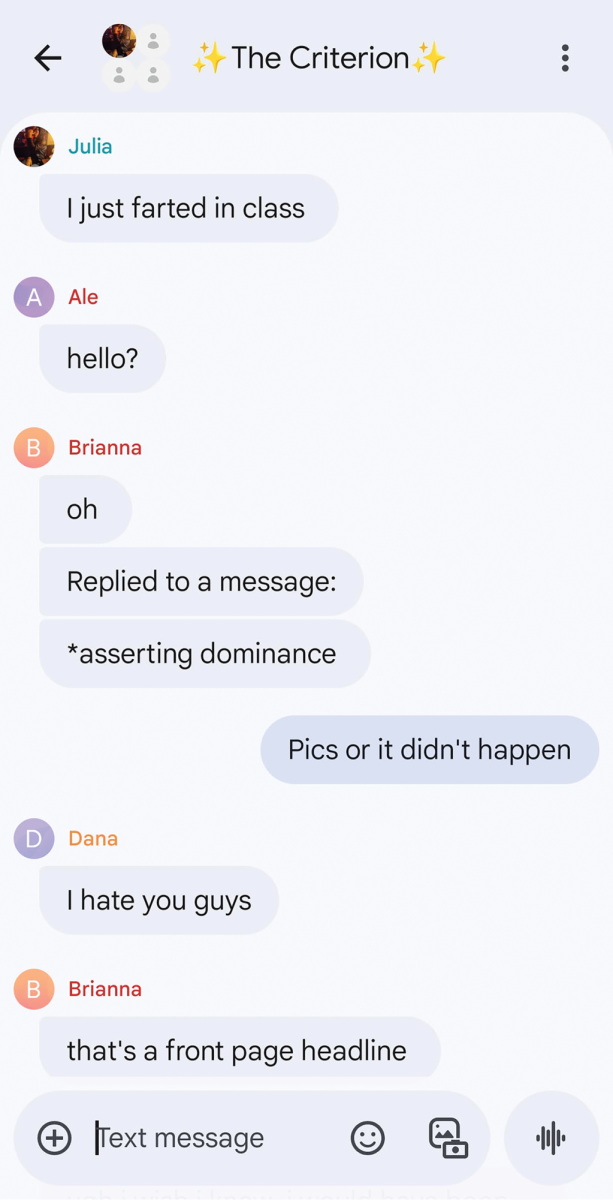On Feb. 20, Colorado Mesa University (CMU) hosted Alex Epstein, author of The Moral Case for Fossil Fuels. The event was put together by the Land Man and Energy Management club.
This is the second time in the past two years that CMU has given a climate-change denier a platform to speak. Last year, CMU hosted Steve Goreham, who is known for his denial of global climate change, and his book “Outside the Green Box.”
This is deeply saddening to me as an environmentalist, but also disappointing to me as a student. I would love to be able to say that I go to a school where both sides of arguments like this are equally represented, but I can’t.
I spoke to Jill Klinger, the president of the Sustainability Council here at CMU, and she expressed some of her own frustrations.
“I think universities are great places to allow for social discourse and difficult conversations like this. And it’s an awesome thing to do. But they brought two people that support fossil fuels without using much evidence to back that in the past two years, without providing or paying for any pro environmentalism speakers to come,” Klinger said.
I know that the First Amendment allows CMU and other universities to bring in whatever speakers they see fit. I’m not trying to infringe on anyone’s constitutional rights. However, I would like to exercise my own First Amendment rights and say that Epstein’s speech was a presentation that didn’t have a lot of substance and was not very credible.
The information that Epstein presented isn’t necessarily false. His central argument was that fossil fuels are beneficial to the development of society.
The thing is, everyone knows these things. Everyone knows that fossil fuels have helped us grow into a technologically advanced and comfortable society. The problem with the presentation was Epstein’s complete denial of the evidence that is also seen as common sense in our day and age: fossil fuels are contributing to global climate change and harming the environment in a myriad of ways. According to NASA, it is highly likely that humans and our industrial habits have contributed to the warming of our planet.
Yes, fossil fuels have helped our society. But the benefits they’ve given us do not automatically cancel out the ways in which they have damaged our health, or environment, and our future.
I began the night with an open mind and continued to have an open mind for the majority of the presentation. Though I felt that Epstein did nothing more than present common-sense knowledge about the benefits of fossil fuels, I was able to see the presentation in somewhat of a positive light.
But the question and answer section was where everything started to go downhill for me as an audience member. If Epstein ever had any credibility as a speaker, it all melted away during this section.
He seemed to avoid the questions, defaulting over and over again to statements about the benefits fossil fuels have done for society. I watched as student after student presented well-informed and extensively researched questions about fossil fuels and their relationship to the global climate emergency. I watched as Epstein artfully dodged each and everyone one of these questions, focusing solely on the good things about fossil fuels and avoiding all conversation about climate change.
It was almost like he thought that if he stated enough good things about fossil fuels, their negative effects would cease to be of any importance. But the truth is that something helpful, like oil and gas, can also be detrimental.
My issues with the speech’s content set aside, there were a few technical things that led to my inability to take the speech seriously. Epstein didn’t cite many sources throughout the entire presentation. Cards were handed out to every member of the audience and we were instructed to write down our emails and hand the cards in in order to get on the mailing list of people he would send his sources and resources to.
This might be old fashioned of me, but I always thought it was customary to cite sources within a speech rather than through an email list.
“He was really good at avoiding […] our questions and going back to his same point, without really having any evidence to support his claims,” Klinger said. “In order to get his sources, we had to sign up for an email. So hopefully they follow through and give us the sources because I would love to see them.”
Klinger also added that she wishes that students had more of a voice during the question and answer period, and that she was frustrated that students had to formulate extremely short questions to go up against an hour and a half long speech.
“It’s not a fair platform and I think this should be a fair conversation,” Klinger said.
Regardless of how much I disliked Epstein’s speech, I’m glad that I was given the opportunity to hear it. He brought up some good points and even changed my mind about some things, like what would happen if we suddenly stopped burning fossil fuels and how it might not be the best idea for the world at this point in time.
I hope that CMU eventually hosts a speaker that accepts the growing emergency of climate change, and whose arguments and ideas are solidified by real facts and data.









